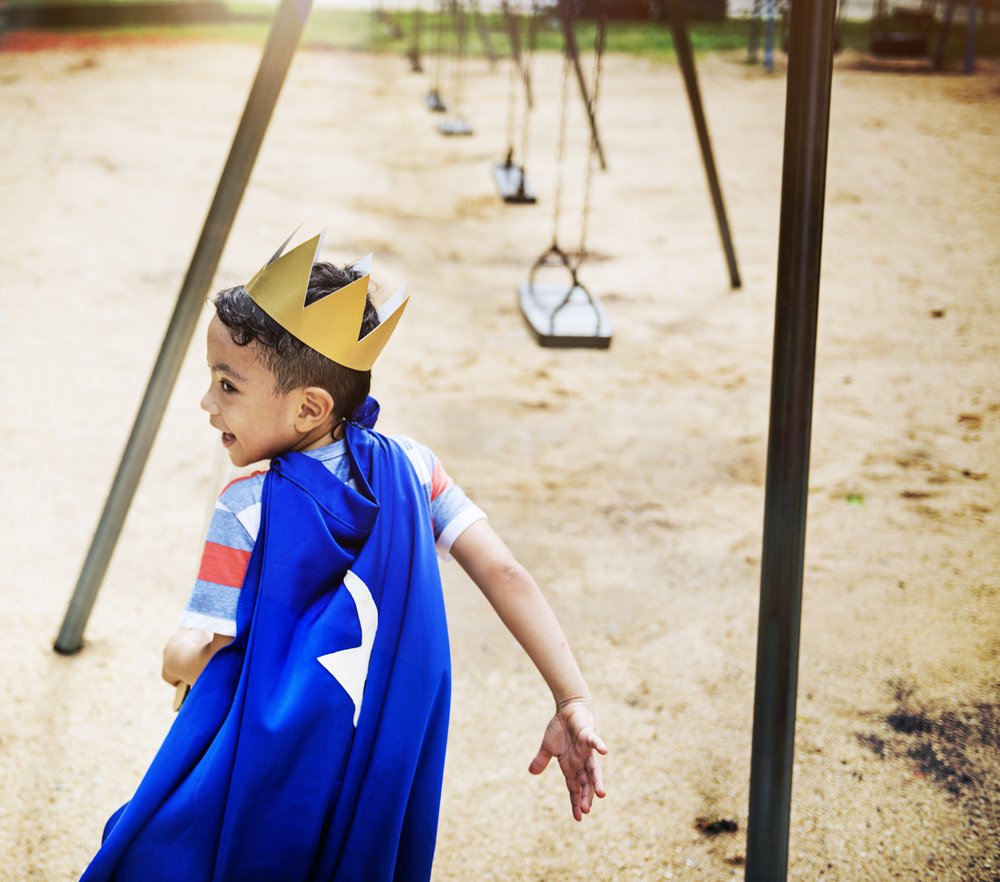Key points:
- Dress-up play enhances brain development in children and fosters cognitive abilities, neural connections, and executive functions.
- Dressing up as a superhero creates a unique space within a child’s mind, promoting future emotional expressiveness, knowledge, regulation, and creativity in life.
- Role-playing, creating stories, making own costumes, encouraging child to dress themselves, and incorporating activities while running errands can improve children’s social, communication, and memory skills.
- Dressing up can be as simple or elaborate as desired with the help of activities and tips promoting learning through play.
We’ve previously talked about the importance of pretend play. This type of play can be extremely varied and today we chose a very special one to talk about.
Have you entered that stage where your little one wants to wear costumes regularly? It becomes an everyday event and not something reserved for Halloween or special parties. Your little one wants to dress up wherever and whenever. While it might seem like just a simple game, actually, when your little one plays dress up and pretends to be a pirate, a superhero, or a cowboy, they gain many skills and foster their cognitive abilities. Keep reading to learn more!
During your child’s early stages, brain development can be enhanced when using imagination through pretend play, for example by dressing up. The simple task of creating images or sounds in your little one’s mind contributes to the development of neural connections, and later on to the acquisition of executive functions.
Dressing up as a superhero is not only about the costume. In their mind, your child has probably created a cool mission to take on, some monster to fight, and friends to rescue. According to a study that took place in Pennsylvania State University Berks, this type of play contributes to children’s future emotional expressiveness, knowledge, and regulation. Other research backs up the importance of performing pretend play, such as dress up, because early imaginative play is associated with increased creative performance later on in life.
We want to invite you to further explore dress up with your child and make the most of it. Here are some tips:
• Make up a story: If your child likes to dress up as a pirate, make up a storyline in which the pirate would need to take action. Maybe they are stranded on a desert island. What would they do to survive? How can they go back to mainland? Your child will put empathy, planning, and problem-solving skills into use, while having fun dressing up and embracing the current role.
• Role play: You can both dress up and participate together in role play. Maybe you can dress up as a baby and your little one as a caretaker. In that way you can see them represent and imitate certain actions they have witnessed or been part of. This type of role play gives you an opportunity to observe the information your little one is receiving from their environment, as well as how they process it. It can also contribute to the formation of empathy.
• Make your own costumes: Another way to improve the experience is to have some cool materials at hand, to design costumes at home. You can practice cutting, pasting, choosing buttons, and all kinds of manual activities that can contribute to the development of fine motor skills.
• Encourage your child to dress themselves: Give them a chance to practice their independence and self-care skills by contributing to the process. Stand next to them and offer your help, so they know you are there to support them. Learning how to button a shirt or tie shoelaces are tasks that require a lot of skills from your little one. With your love and dedication, you’ll help them become more tolerant of frustration and better at this each day. Dressing, as most of our skills, is built through repetition. Your little one might get flustered if they can’t get it done at the first or second try. If this happens, offer your support by mentioning that you understand the way they feel and encourage them to try again.
• Take them out on errands: This can also give it a fun twist that will strengthen your relationship with your little one. Take them on errands while they’re dressed up. You will both notice the fun ways in which people interact with them. Maybe they will ask questions about their costume, or they might even stay in character and talk to people about the desert island they are trying to escape from. Through this activity, your little one will improve their social and communication skills, while also working on their memory by remembering earlier events. You’ll have an amazing time together; nothing beats a great adventure with your little one!
Your child’s brain and ideas at this point are so flexible and abundant, that it’s the perfect time to enjoy playing with them and fostering their learning through play. Dressing up can be as simple or elaborated as you desire, with these tips you can choose whatever fits better and enjoy them at home. Try them today!








